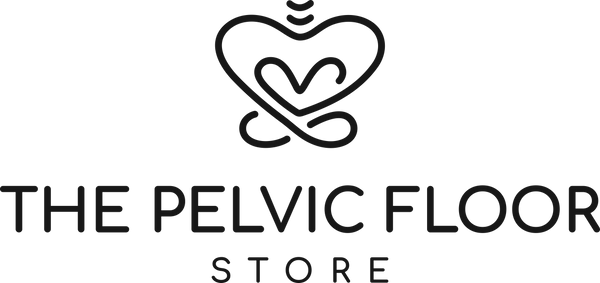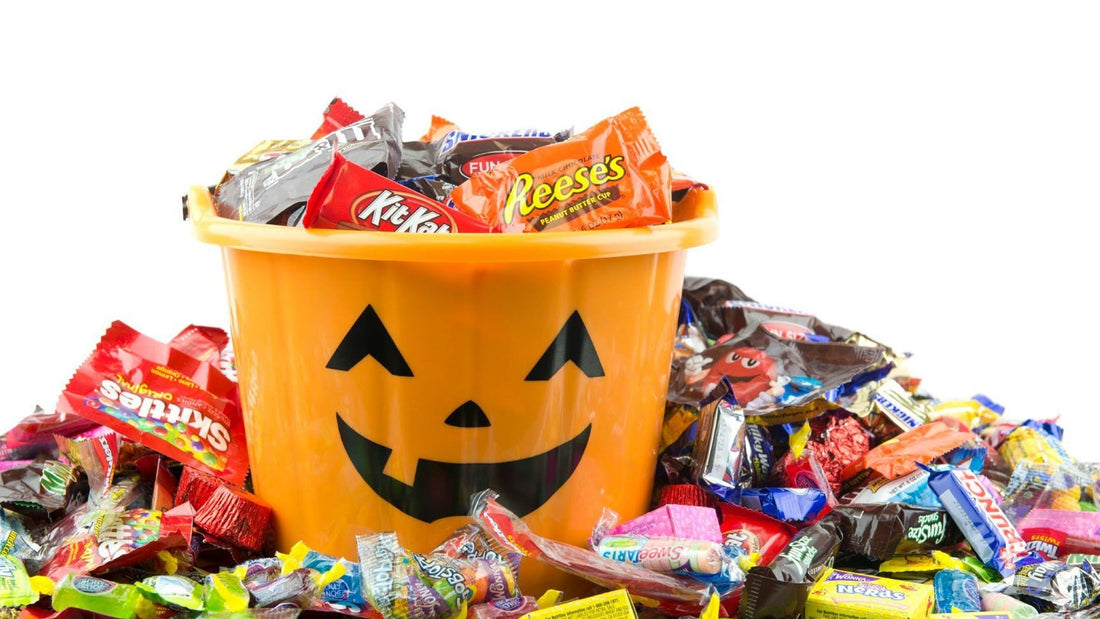Trick or Treat: This Time of Year is Not a Treat
By Dr. Betsy Greenleaf DO, FACOOG(Distinguished)
Spooky stories, kids in costumes, and tons of candy make up the Halloween season. However, this time of year is no treat for those with inflammatory conditions. Fifteen years of practicing urogynecology have led me to see a pattern. Whether it is the chocolate overload or just the massive dosing of sugar, I always see a rise in patient visits during this time. Typically pain conditions, interstitial cystitis, and skin conditions get worse because of increased consumption of sugary foods.
Why We Like Sugar
Sugary foods trigger the reward centers of the brain. Evolutionarily this would be advantageous to encourage us to eat these foods when available. Our bodies would convert the excess calories into fat storage to provide for us when food was scarce. In today’s world, with readily available food, we no longer need this process. (Freeman, 2018)
Sugar has also been compared to an addictive substance. The more sugary substances we eat, the more our body craves. Studies have shown similar reward centers are activated in response to sugar that occurs in those addicted to opiates or alcohol. Rat studies have demonstrated “high levels of sweetness from non-nutritive saccharin or sucrose more rewarding than cocaine even for rats that were already dependent on cocaine” ( (M Lenoir, 2007)
What Sugar Does to Our Bodies
Not only does sugar have a potential for triggering addiction in our bodies, but it is also highly inflammatory. The hypothalamus, a gland located in the brain is the primary regulator of our hormones and metabolism. Diets high in sugars have been shown to affect the hypothalamus which in turn triggers this gland to produce inflammatory chemicals in the body (Gao Y, 2017). Body inflammation can result in many different symptoms from producing pain and burning but also leading to effects on memory, depression, diabetes, and heart disease. Sugars also affect our immune system by disrupting our gut microbiome leading to increased risk of infection. We also know that the condition of the gut affects the functioning of the brain. Chemicals produced in the gut regulate hormones in our brain. This cycle goes round and round. Sugar disrupts the normal functioning of the gut thus affects the normal functioning of the brain.
Trick or Treat
So what to do about Halloween? The best answer would be to avoid candy altogether. Unfortunately, as an admitted chocoholic, I know this is not the most realistic answer. So here are some tips
Giving Out Treats:
- Buy candy you do not like. This way, if there are leftovers, you will not be tempted to eat it.
- Try to get rid of as much candy as possible. As the night starts to die down, let the kids take as much from you as possible. The less you have in the house, the less tempted you will be.
- Hand out trinkets instead of candy. Buy little cheap toys, erasers, or pencils from the dollar store or Oriental Trading Company (https://www.orientaltrading.com).
- Do not participate in Halloween. If it is too tempting for you, then just do not do it. It is okay to be the house that does not hand out anything. Turn the lights off. Go out for the night to dinner or a movie.
Kids Brought Home Too Much Candy
- Try to put it out of sight or in a location that is tough to reach. Make it difficult for you to just mindlessly grab any candy
- Donate the candy. There are many programs out there. Here are just a few
- Operation Gratitude: Provides candy to our troops. Email them at candy@operationgratitude.com
- Ronald McDonald Charities https://www.rmhc.org/
- Local Hospitals
- Local YMCA
- Local Churches
- Some Dentists and local businesses host candy buyback programs http://www.halloweencandybuyback.com/
So You Ate Some, Now What?
- Do not be hard on yourself. Stress also releases inflammatory chemicals. Just own up, take a deep breath and say to yourself, “ I will do better tomorrow.”
- Allow yourself 1 or 2 pieces. By making the candy off limits, you can create a situation that backfires. Psychologically, when you restrict something in your life, when you eat that candy you will trigger a more significant reward response, which in turn will make you crave it more. By allowing yourself to have some candy, you will decrease some of that reward response
- Stay well, hydrated. Water dilutes and helps the body to rid inflammatory by-products. Drink enough water until your urine is clear. Staying well-hydrated will also cut down on cravings and bingeing.
- Try to substitute other foods to prevent eating the whole bag of candy. Try vegetables to satisfy crunchy urges and fruit for sweet urges.
Not Only Did I Eat It But Now I Am In Pain
- Stop eating any high sugar foods
- Like mentioned earlier. Drink Tons of Water
- Support your gut. Increase healthy probiotic foods such as yogurt, kefir, kimchi, sauerkrauts and add probiotic supplements like these https://pelvicfloorstore.com/collections/probiotics
- Consider anti-inflammatory foods such as fish or add fish oil
- If you can take nonsteroidal anti-inflammatories such as acetaminophen or ibuprofen, these may help short term but check with your doctor
- Bladder burning and inflammation can be relieved with a product called Prelief https://pelvicfloorstore.com/collections/urinary-tract-health/products/prelief-120-ct or try ½-1 tsp of baking soda in 8 oz of water. Do not drink this more than twice daily
- Antihistamines such as Benedryl or Claritin can sometimes stop some of the inflammatory actions. Once again, check with your doctor to see if you can take these.
- CBD had high anti-inflammatory properties. Typically these products can take a while ( weeks ) to get full results. https://gleafgear.com/collections/cbd/products/cbd-tincture-full-spectrum?variant=16374210691162
Food Season
Halloween is the kick-off of the inflammatory food season. Soon after Halloween comes Thanksgiving followed by the winter holidays. Protect yourself by eating healthy. Look into these low inflammatory diets such as the anti-histamine diet https://www.histamine-sensitivity.com/histamine_joneja.html or The Wahls Protocol https://terrywahls.com.
References
Freeman, C. Z. (2018, June 1). Impact of Sugar on the Body, Brain, and Behavior. Frontiers in Bioscience, 23, 2255-2266.
Gao Y, B. M. (2017, June 20). Dietary sugars, not lipids, drive hypothalamic inflammation. . Molecular Metabolism, 6(8), 897-908.
M Lenoir, F. S. (2007). Intense sweetness surpasses cocaine reward. PloS One, 2(8), e698.

